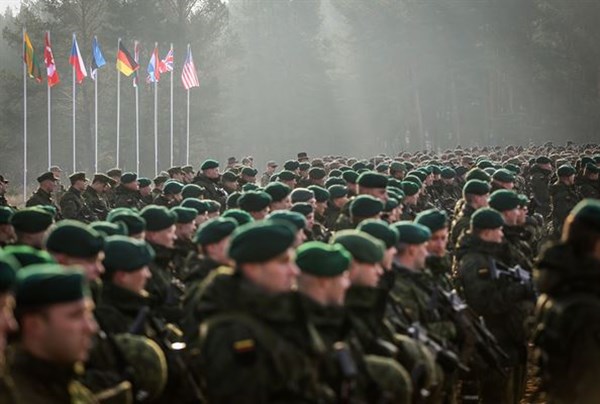Russia dismisses German Intelligence claims of potential attack on NATO as 'illogical'
In a statement from Moscow on Monday, October 14, Russian Presidential Press Secretary Dmitry Peskov dismissed claims from Germany's Federal Intelligence Service (BND) head Bruno Kahl that Russia might be capable of launching an attack on NATO by the end of this decade at the latest. Peskov described Kahl's remarks as illogical, according to the Interfax news agency.
“Russia has never moved its military infrastructure towards NATO. The process has always been the opposite,” Peskov highlighted, referencing the “waves of expansion” by the alliance and the approach of NATO’s military infrastructure to Russia’s borders.
“Therefore, claiming that Russian armed forces pose a threat to anyone is absolutely wrong, illogical, and contradicts the entire historical process that led to the current confrontation we’re experiencing,” Peskov added.
Speaking before the German Bundestag’s committee overseeing intelligence services, Kahl expressed confidence that the Kremlin views the Federal Republic of Germany as an adversary.
“We are in a direct conflict with Russia,” he remarked, noting that Germany ranks second only to the United States in the level of aid provided to Ukraine as it defends against Russian aggression. For the head of the German intelligence service, Putin’s agenda involves not just Ukraine but “the creation of a new world order.”
The BND chief urged German authorities to expand the capabilities of intelligence services. “Russian intelligence services are increasingly utilizing all available resources and acting without any scruples,” he stated. “Further deterioration of the situation is anything but unlikely. Therefore, politicians must provide German intelligence with the means and authority to counter these threats.”
In February 2022, ahead of Moscow's full-scale invasion of Ukraine, the North Atlantic Alliance persistently urged Russia to continue talks within the NATO-Russia Council. Then-NATO Secretary General Jens Stoltenberg, at a joint press conference with then-UK Prime Minister Boris Johnson on February 10, mentioned sending a letter to Russian Foreign Minister Sergey Lavrov, extending another invitation for dialogue to seek a diplomatic solution.
The first NATO-Russia Council meeting since 2019 was held in Brussels on January 12, 2022. During the four-hour session, progress was elusive. The U.S. and its NATO allies asserted that NATO doors would remain open to new members and that Russia does not have veto power over this matter.
